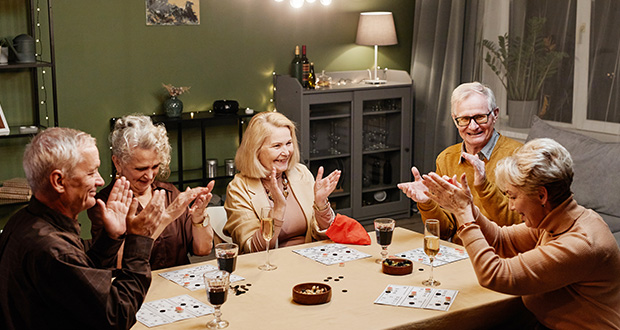A riskier side to bingo emerges as new technologies up the ante

New research suggests older people might be encouraged to engage in more harmful forms of gambling as bingo outlets introduce new technologies similar to those used in poker machines.
Gambling is most prevalent among Australians over 65, where nearly 60 per cent regularly take part in gambling activities, while almost a third of bingo players have gambling problems.
Five researchers from La Trobe University were concerned about the increased availability of personal electronic tablets (PETs) and interviewed three community groups to assess their potential harm.
"PETs are now available in many clubs and licensed bingo centres, and those tablets allow you to play a lot more games at once than you possibly could if you were doing paper books," co-researcher and associate professor Sarah MacLean said.
"An experienced player can perhaps play six books. I could do about three at once.
"But nobody can do a hundred at once and that's what you can do if you buy games on a PET.
"It drastically raises the amount of money that people can spend."
Bingo attracts higher at-risk demographics such as single women and older people with a lower or fixed income.
"The context of bingo is quite different because people who play it are often socioeconomically deprived or don't have a lot of money," MacLean said.
"That means that even smaller losses can have a bigger effect on their lives."
Since the tablets can play up to 200 games each time, which automatically crosses off the numbers for players, money can be spent rapidly.
MacLean was surprised by how much PETs changed the nature of bingo to make it look more like the pokies.
"They have flashing lights and make noises, and they encourage you to think that you've only just missed out on winning so you want to spend more on games," she said.
"Bingo is being commercialised this way.
"We need to limit that to preserve the social nature of the game and the many benefits it provides, particularly to older people."
Traditionally, bingo was inexpensive to play and enjoyed by older, close-knit communities.
Though bingo has changed over the years, many community-dwelling older people still view the game as a necessary social outlet.
One participant said during the researcher's interviews that "it helped them escape from the loneliness of living alone".
"I think a lot of the older people, particularly those who've lost a spouse or whose children lived a long way away, particularly found great social support to go to bingo," MacLean said.
MacLean acknowledged that bingo has many positives but emphasised that the changing nature of bingo can intensify the risk of harm for players.
The researchers also recommend separating bingo from other gambling products to reduce temptation.
"We watched people leave bingo, or during the bingo breaks, to go and play the pokies because they were available in the same building in the next room," she said.
"We suggest that caps be put on how many games can be played at once on PETs.
"Keeping bingo away from more harmful gambling products like the pokies could also reduce risks.
"It's certainly not stopping the fun of bingo, but just some regulatory changes to make it safer."
Email: [email protected]





